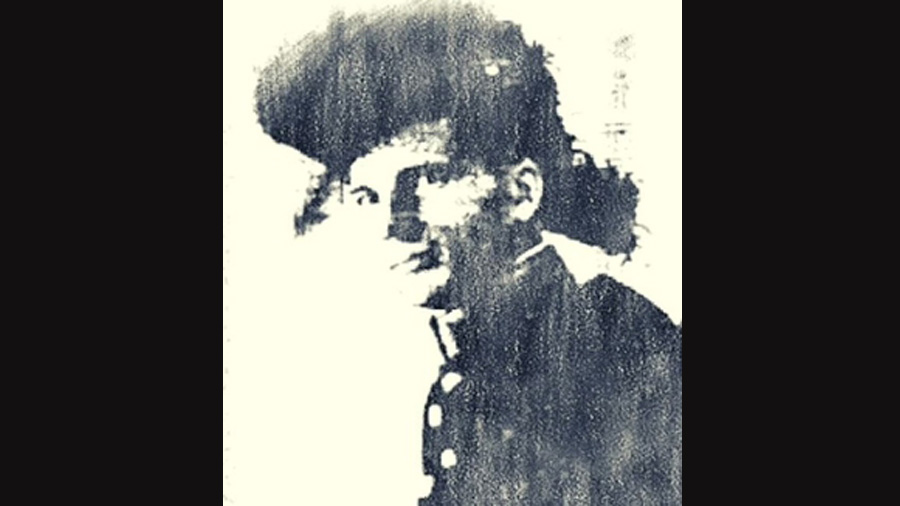Michael Carritt is remembered as a British civil servant with underground links to Indian communists. Educated at Oxford, he joined the Indian Civil Service and served the Bengal Presidency in several capacities, notably in the Political Department, between October 1935 and end of 1937, during which he reportedly leaked police intelligence reports to his Indian comrades. He had contacts with Indian communist leaders like Ajoy Ghosh, P.C. Joshi, S.A. Dange and S.V. Ghate.
Carritt retired from the civil service in February 1939, and became an active member of the Communist Party of Great Britain, primarily assisting the formulation of the Party’s policy on India. During the Second World War, he organized a group of Indian communist students in Britain and participated in the British campaign for Indian independence. His secret connections with Indian communist leaders, his commentaries on India’s communist movement, and his disdain for hypocrisy and snobbery of British civil servants under the veneer of ‘white man’s burden’ are well expressed in his memoirs, A Mole in the Crown.
What has eluded scholarly scrutiny is Michael’s perceptive writings on the evolving Indian situation of his time. I draw attention to four such articles published in Labour Monthly. The first, “India Before the Storm” (May 1940), outlined India’s political scenario by stressing three interconnected factors: the weakening of the imperial stranglehold over India’s strategic and economic resources; the strengthening of India’s nationalist politics both from mainstream Congress leadership and the Left within the Congress; the growing contradiction between the Gandhian politics of non-violent restraint and popular militancy, a trend stressed by the Subaltern Studies collective.
Michael’s insightful understanding of India’s agrarian question showed in his November 1940 piece, “India’s Agrarian Revolution”. Taking a critical look at the Floud Commission, he explicated Bengal’s complex, hierarchical, exploitative agrarian structure created by the Permanent Settlement — with zamindars on top, followed by intermediary landlords, tenant farmers, sub-tenants, sharecroppers and landless labourers — which caused rack-renting of the peasantry and declining agricultural productivity. Michael suspected that Fazlul Haq, who had won the provincial election promising to abolish landlordism, constituted the Floud Commission to buy time, realizing that his coalition ministry — dependent on landlords — could not implement radical land reforms. Referring to “mass movements that are sweeping across India”, Michael felt that only a social revolution, which the Floud Commission had sought to avoid, could resolve the agrarian crisis.
In February 1941, Michael wrote “The Crisis in India”, exposing the double-talk by the Tories and Labourites alike. While Indians were urged to join the War against fascist Germany, London left democracy and freedom for Indians as “undefined wishes”, preferring to present India as so “disunited, disorderly and generally intractable” that it was unable to self-govern. Michael explained that the imperial argument of War industries ushering in India’s industrialization was illogical, since it would not be based on “satisfaction of its social needs”. He also anticipated India’s economic crisis following the reduction of rupee’s silver content and an overproduction of jute, initiated on the pretext of a rising demand for jute sandbags. He regretted that instead of exploring a democratic constitutional settlement, the Tory leadership was “foolish” in proposing a system of “functional representation... with an Executive authority independent of the Legislature”, reflecting the fascist idea of a corporate State.
In November 1945, Michael lamented in “Searchlight on India” the drying up of “new opportunities” to settle the India question. He deplored how the Labour prime minister, Clement Attlee, became a victim of his predecessor’s determination to deny India a democratic Constituent Assembly and foment communal tensions among the Indians.
Michael’s voice was of the British Left, in consonance with his other progressive compatriots who served in India but remained critical of the raj, like Humphrey House, Michael Scott and John Bicknell Auden. A comparative study of the writings of this ‘circle’ can yield new insights on colonialism and the multiple facets of indigenous opposition to the raj. A systematic analysis of Michael’s compositions on India and the world of his age, lying scattered in British repositories, will surely establish Michael as, what Gramsci calls, a “traditional intellectual” whose discourses contributed to the intensification of contradictions between British imperialism and Indian nationalism.
Suranjan Das is a historian and Vice-Chancellor, Jadavpur University











